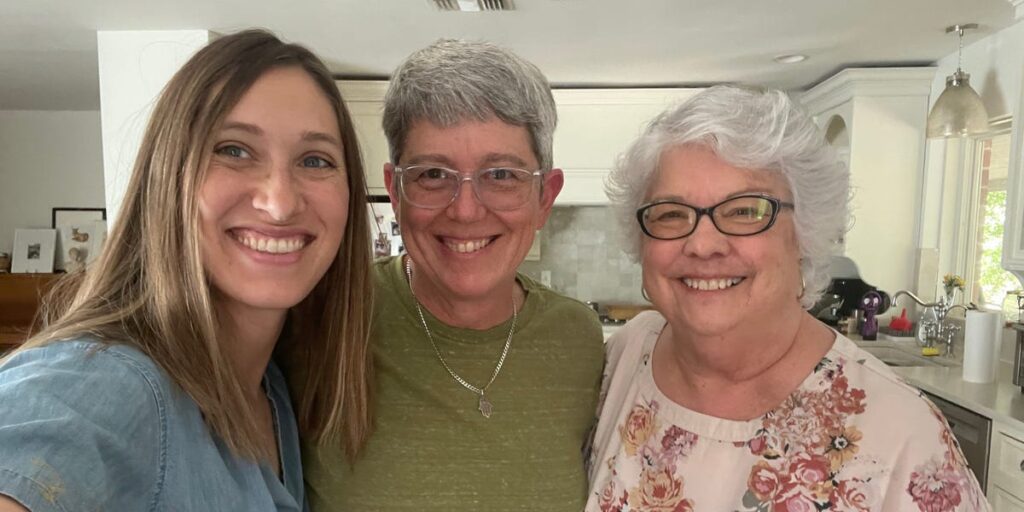In my 20s, a friend of mine had friendships with a few older women that I envied. They weren’t mentors to her, but genuine friends, which meant when she shared her vulnerabilities, they also shared theirs. I could tell how much she gleaned from their sage advice and perspectives. There was a confidence that came from their proven life experience, and I wanted to learn from that, too. But I had no idea how to make older friends.
A few years later, when I was 27, I joined a writer’s critique group and unexpectedly gained the valuable relationships I had been hoping for with people in their 50s, 60s, and 70s. Perhaps the best part of having older friends who write memoirs and essays is that I am privy to their stories and their perspectives on life’s hardships, and I hear what they think about my work and experiences, as well. Here are some of the most helpful things I’ve learned from them.
We often trade one hardship for another
As a mother of three young kids, part of me started to look forward to that season in life when I would have “me time” again. No children waking me in the middle of the night, no interruptions from my work when I was in deep focus mode, just peace and quiet and a schedule on my terms.
I used to think the child-rearing season in my life was supposed to be a time of profound selflessness, but having older friends taught me that we often trade one hardship or caretaking responsibility for another.
One of my friends cared for her husband through more than 20 years of illness due to Lewy Body Syndrome and early-onset Parkinson’s. Still another is a tireless caretaker for her wheelchair-bound husband. And I have friends caring for their adult children, too, for mental and physical health-related reasons.
While caretaking isn’t a universal experience, every stage of life has its own inherent difficulties. Rather than relying on future “me time” when my children are older, I’ve started pursuing my hobbies and interests alongside raising them. Last summer, I had the opportunity to hike the Grand Canyon, but I worried about leaving my 1-year-old for the first time and the short training window.
My friend Kerri grabbed my hand and said, “Go, don’t let fear hold you back.”
“Hike it while you still have good knees,” another friend, Linda, added.
Because my older friends encouraged me, I went and had an unforgettable hike.
Whatever life throws at you, it’s best to keep a positive perspective
Linda cared for her mother after a dementia diagnosis.
“That must’ve been so hard,” I said, pityingly.
“It was an absolute privilege,” Linda answered.
I want to be more like Linda and accept each new phase of life as a privilege and an opportunity for growth.
Aging can bring a new level of self-confidence
One day, I confessed to Kerri that despite my best efforts, my newfound love handles seemed determined to stick around.
She responded with a knowing smile. “As we age, our bodies settle into themselves.” She said it like it was a good thing — and for the first time, I wondered if that could be true.
Some of my friends say aging has brought a new level of confidence. They’ve stopped caring what other people think quite so much, and choose to be themselves unapologetically. Despite wrinkles and flabbier arms and mid-sections, they feel more comfortable in their own skin. I’m told it’s liberating.
I find their authenticity inspiring and refreshing to be around. I want to be confident in the “settling,” too, and not worry so much about achieving lifelong, youthful perfection.
There’s a part of us that never really ages
“You never stop feeling like you’re 23,” Linda told me once. “My mom used to say it to me, but I didn’t believe her. Now I do.”
She smiled, her dimples prominent. “Our bodies age, but our spirits stay young.”
Linda says that part of feeling young forever is always learning and experiencing new things, and age is just a number.
I believe her.
Read the full article here
















